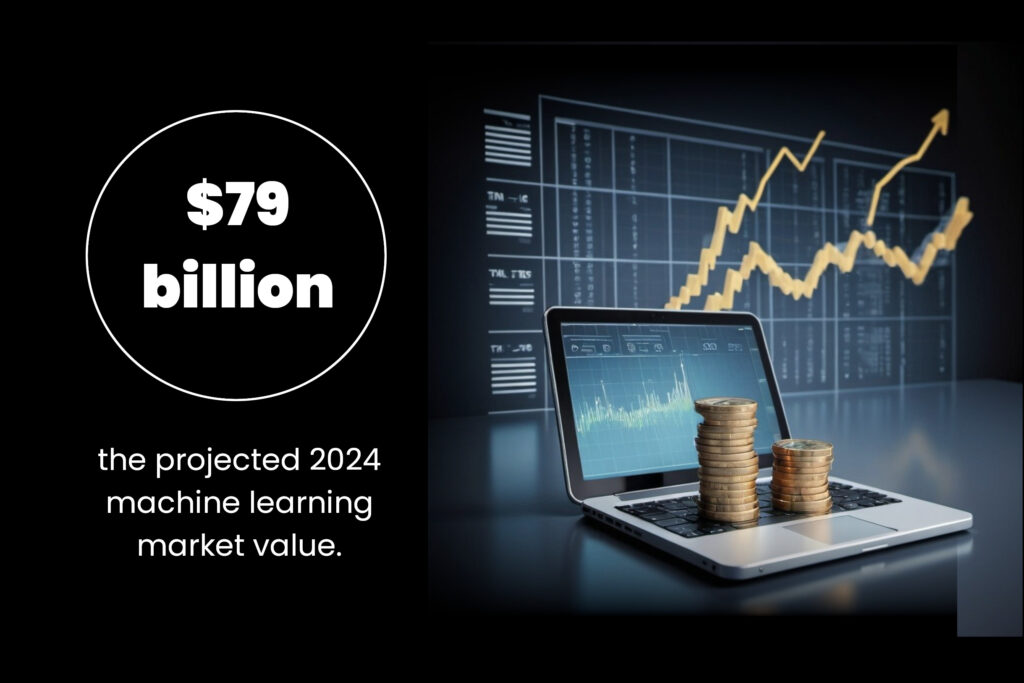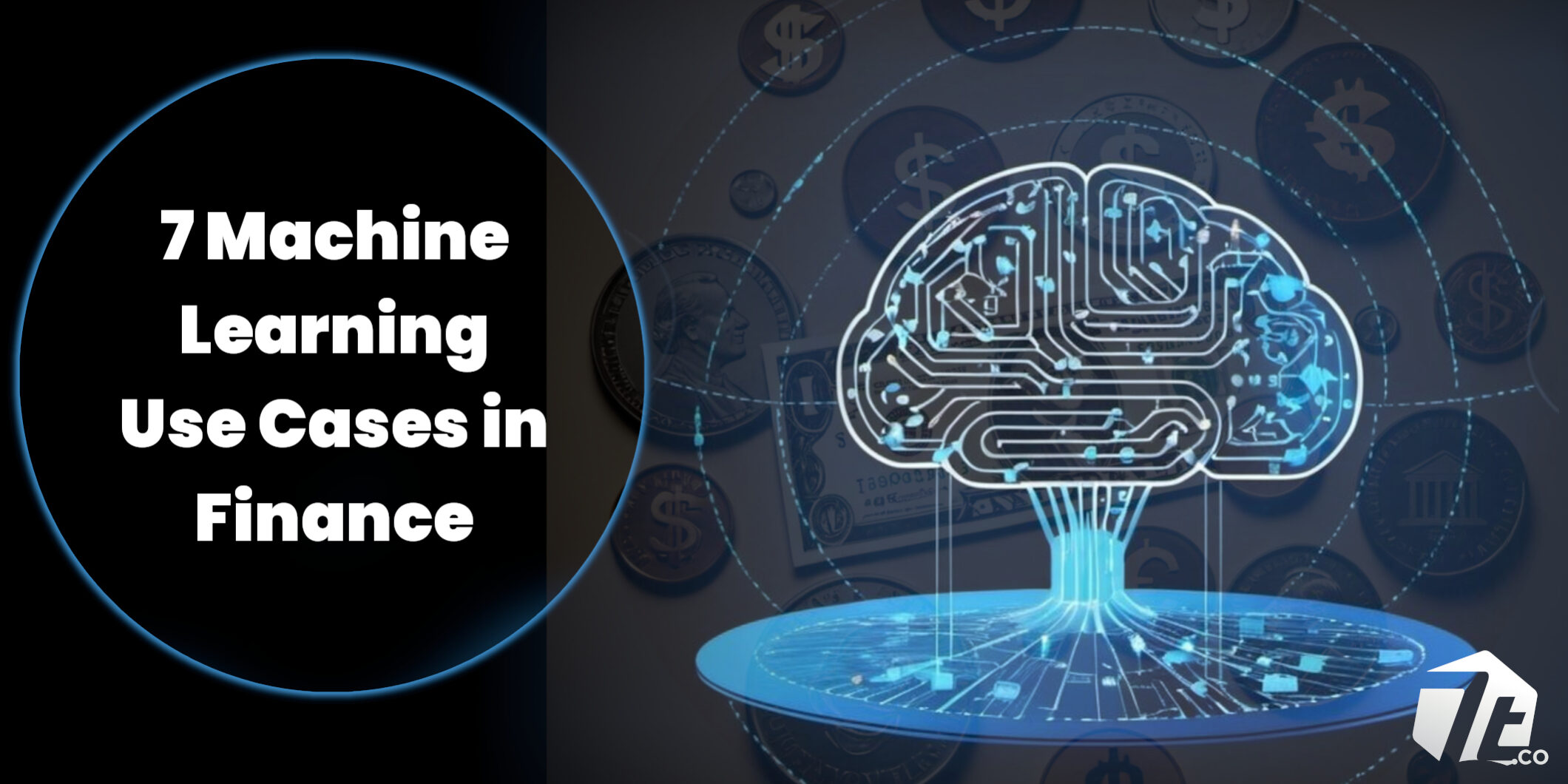Machine learning, in conjunction with artificial intelligence, has been rather transformative for the financial industry, including stock market trading firms, banks, credit unions and other financial institutions. The financial space is a data-heavy industry and as such, developers often have an abundance of data that can be used to train machine learning models.
So how can companies in the financial space leverage this technology? Consider the following machine learning use cases in finance-related companies.
Using Machine Learning to Generate Stock Market Forecasts
The stock markets generate an abundance of data, which lends itself to the development of machine learning models. Machine learning-driven AI is adept at spotting stock market patterns and trends — data that is key to making decisions on when to buy or sell.
Historical data can be leveraged to make stock market predictions, allowing for algorithmic trading where advisors develop trading strategies based upon those predictions. Machine learning also lends itself to high-frequency trading (HFT), where you have multiple trades, performed at a rapid pace.
Security and Fraud Detection as a Machine Learning Use Case
Security and fraud detection are two significant concerns for the financial industry. But humans are creatures of habit, which means that machine learning technology can be extremely effective when it comes to identifying behavioral patterns and trends that may be indicative of fraud.
Machine learning models can be trained using historical data, which is then used to identify suspicious behavior. This suspicious activity can take many forms, from illegal trades, to money laundering or hacking a financial institution’s database. Artificial intelligence technology is used in concert with ML, disabling suspect user accounts, deploying security measures, alerting human security professionals and taking other actions to maintain a secure digital environment and minimize losses.
Chatbots as a Machine Learning Use Case
 Chatbots have advanced by leaps and bounds in recent years, with machine learning and artificial intelligence technology elevating this engagement tool in some remarkable ways. AI- and machine learning-powered chatbots can engage users in a customer service capacity. But many chatbots have advanced far beyond this, offering financial advice and tips. Bank of America’s chatbot Erica has evolved to become the Alexa of the financial world.
Chatbots have advanced by leaps and bounds in recent years, with machine learning and artificial intelligence technology elevating this engagement tool in some remarkable ways. AI- and machine learning-powered chatbots can engage users in a customer service capacity. But many chatbots have advanced far beyond this, offering financial advice and tips. Bank of America’s chatbot Erica has evolved to become the Alexa of the financial world.
Machine learning algorithms also allow you to improve a financial institution’s chatbot over time, often resulting in an ROI that grows over the long term.
Financial Monitoring as a Machine Learning Use Case
Countless consumer-targeted apps feature financial monitoring capabilities, which can be bolstered by machine learning and AI technology. Financial planners can also leverage this technology to provide clients with recommendations based upon their financial habits and trends.
Personal capital management is a growing trend within the financial industry. This is one machine learning use case that is likely to become increasingly popular in the coming months and years, with more and more financial advisors leveraging ML and AI to monitor client financials and offer financial recommendations.
Process Automation and Machine Learning in the Financial Industry
Machine learning and AI technology are being used to automate processes and eliminate paper, the latter being a common goal across the financial industry. In fact, Reuters reported that Bank of America spends $1 billion annually transporting paper money in armored vehicles. And then there’s the expense of producing and mailing paper bank statements and other documents. In an effort to boost profits, banks and other financial institutions are seeking to eliminate paper from the equation by digitizing and deploying process automations.
AI and machine learning technology can be very useful in this application, as ML allows you to identify patterns and trends that are associated with processes that will lend themselves to automation. Once a process is identified as a good candidate for automation, AI can be used to help make decisions when multiple options or courses of action are available.
Data-Driven Decisions Using ML and AI
Machine learning technology gives you the power to make the most of your data and there are few places where you’ll see a greater impact when it comes to data-driven decision making in the financial industry.
Whether it’s deciding when to buy, sell or hold stocks, or the case of a financial advisor who’s making recommendations to clients, machine learning can be used in conjunction with AI and predictive analytics to arrive at an informed decision that’s based upon hard data.
Using Machine Learning for Risk Analysis and Risk Management in the Financial Industry
The financial industry is inherently risky, which means that risk management and risk mitigation efforts are continually ongoing. Machine learning is perfect for spotting the patterns and trends that have been associated with elevated risk levels. Add artificial intelligence to the equation and you have technology that identifies risk and then takes action to minimize, neutralize or mitigate that risk.
What’s more, you can add analytics capabilities to a machine learning-driven AI platform, making it possible to derive useful insights that can be used to further minimize risks.
Predictive analytics pair well with AI and ML, making for some powerful technology that allows a financial institution to make the most of its data. Machine learning is used to identify trends and patterns, while predictive analytics allow you to derive meaning from that data. Artificial intelligence is used to take action, taking cues from the predictive analytics insights, amongst other things.
Hiring a Top Dallas AI Development Company
At 7T, our machine learning and artificial intelligence development team is ready to work with your organization to identify your challenges and discuss your goals for the future.
We take a problem-solving approach to development, beginning with a comprehensive machine learning consultation, including the analysis of a client’s challenges and pain points. Then, we’ll develop technology that helps you make the most of your data, while solving those pain points and driving your business forward — all while ensuring that your financial institution remains compliant with all applicable rules and regulations.
7T is based in Dallas, with additional locations in Houston, and Charlotte, NC. But our clientele spans the globe. If you’re ready to learn more about AI and machine learning development for the financial industry, contact 7T today.








